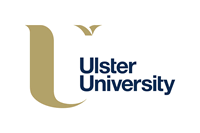It is well known that some animals, particularly humans, have a sense of self-awareness. Awareness can be reported or inferred when undergoing various forms of cognitive tasks such as when making decisions. Highly studied tasks in which such metacognition is present include perceptual decision-making, which involves the transformation of sensory perception into a single decision, typically requiring some form of evidence accumulation over time [1]. Our previous computational modelling work has developed a biologically based neural network model for monitoring decision uncertainty level on-the-fly [2]. Our model could replicate certain key characteristics of decision uncertainty (or its reciprocal, decision confidence), while also accounting for change-of-mind behaviour via internal feedback control mechanism [2, 3].
This Ph.D. project aims to use computational modelling and mathematical analysis to further understand the computational principles underlying decision uncertainty awareness. Model’s behaviours will be compared to experimental data (e.g. [4]), including data from collaborator labs and open data. Computational models will be extended for machine self-awareness and novel brain-inspired learning algorithms for AI applications. This timely and exciting project is available in the Computer Science Research Institute and is tenable in the Faculty of Computing, Engineering and the Built Environment, at the Magee Campus.
The successful PhD candidate will benefit from the expertise of Ulster University’s Computational Neuroscience, Cognitive Neuroscience, AI, Machine Learning and Computational Biology communities, and will interact closely with various leading international collaborators. The student will gain valuable knowledge in data mining and machine learning techniques, computational modelling, high-performance computing, applications of mathematics/statistics, and the brain sciences. These are essential in many areas of science, engineering, mathematics, and health and biomedical sciences. This training will provide wide opportunities for finding skilled work, especially in the burgeoning field of AI and data science/analytics

 Continue with Facebook
Continue with Facebook



